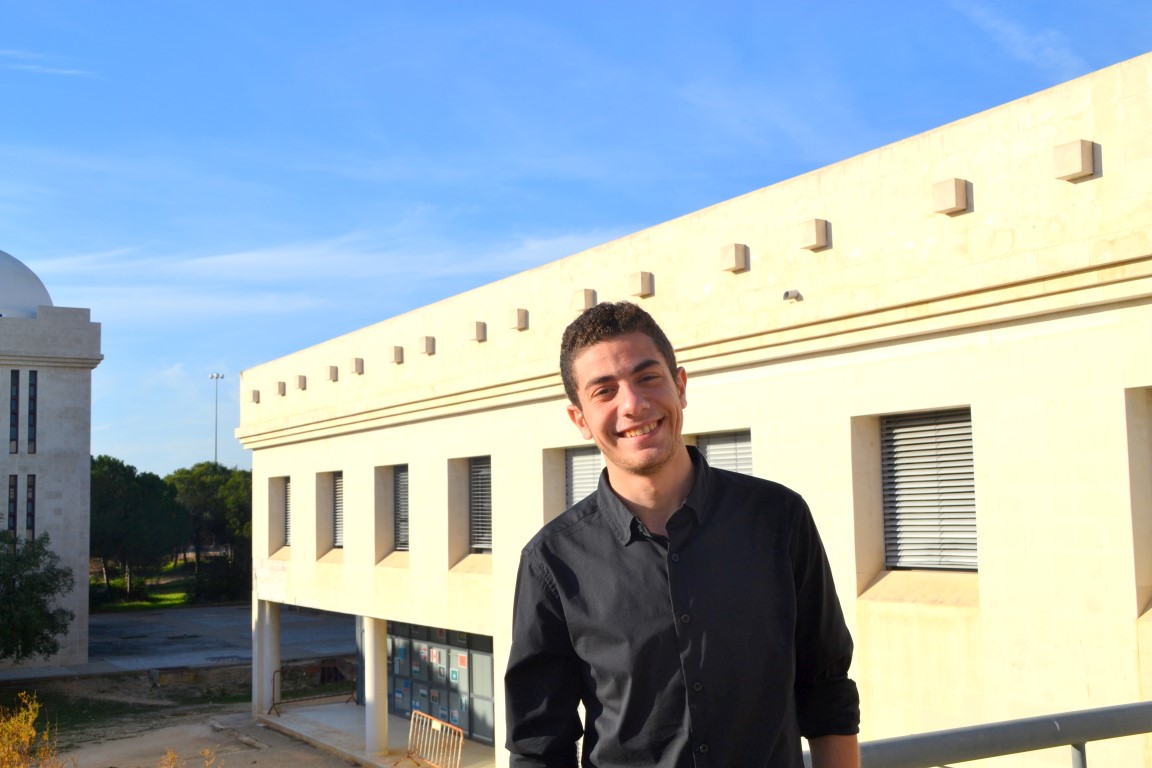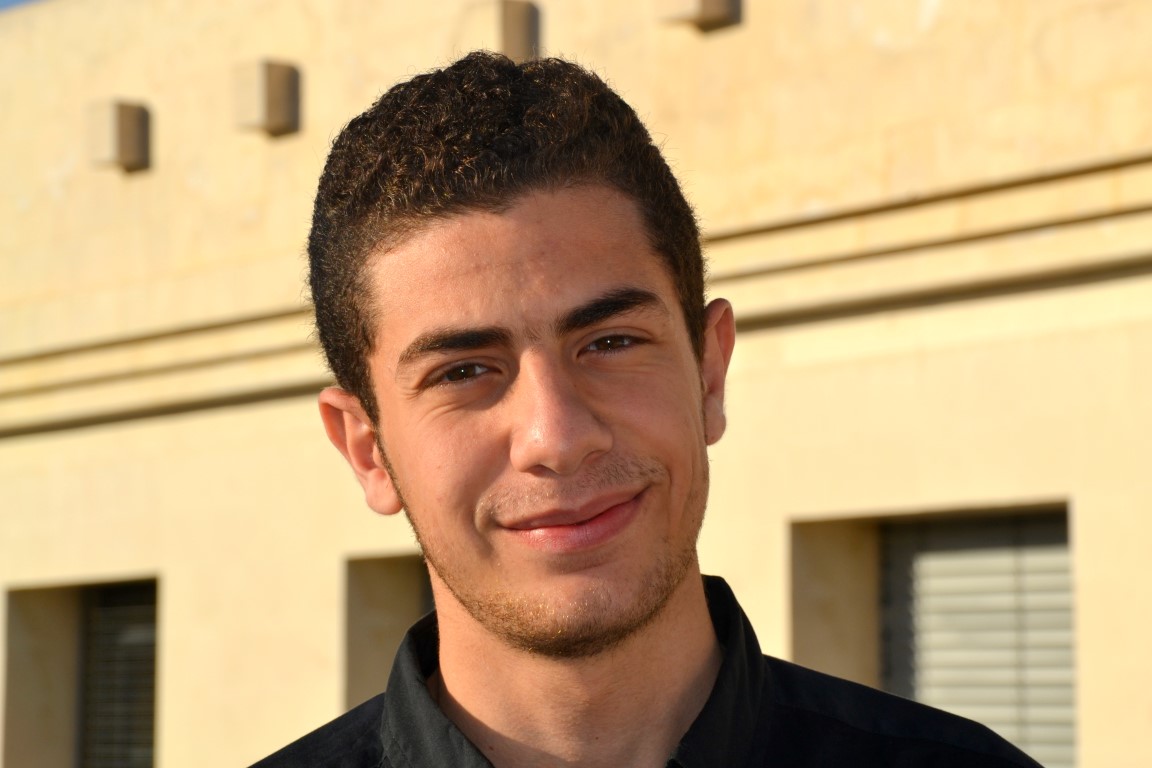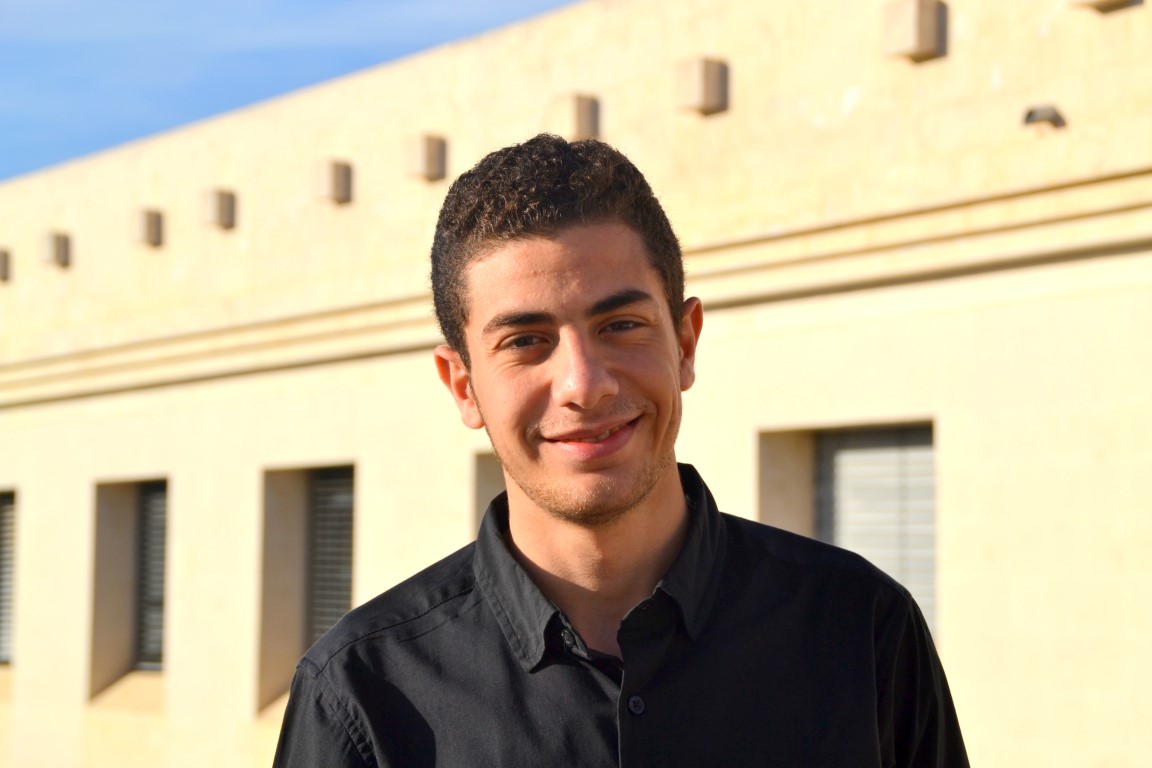 Until 2011, Mohamed Tarek Said had a “good life”, in a small town, near Damascus, the capital of Syria, where he “went to school, was with friends and family, went for walks…”. Then came the war and Tarek lost all that. The school started recruiting for the army, shootings became a constant and the family was forced to separate.
Until 2011, Mohamed Tarek Said had a “good life”, in a small town, near Damascus, the capital of Syria, where he “went to school, was with friends and family, went for walks…”. Then came the war and Tarek lost all that. The school started recruiting for the army, shootings became a constant and the family was forced to separate.
Tarek fled to Turkey, where he finished secondary school, and, just over a year ago, he arrived at Faro, before the migration crisis hit the covers of newspapers across Europe. Now, at the age of 19, the Pharmaceutical Sciences student at the University of Algarve has regained part of the "good life" he had in Syria, but if he can, that is where he would like to return "to help people".
It was the Global Platform for Assistance to Syrian Students, promoted by former President of the Republic Jorge Sampaio, which brought Tarek to Portugal and to the University of Algarve, in order to continue his studies, but not everything was easy in the early days.
«In the beginning, I was afraid to talk to the Portuguese, because I didn't know them. They had another culture, another country, and I had never seen European people," the young Syrian told Sul Informação, in the first interview he gave to a newspaper.
Now, his image of Portugal is different: «the Portuguese are nice, simple. They are good people. I don't feel that they think: “Oh he's from Syria, I don't want to talk to him”. They treat me like a Portuguese person, a normal person».
In Portugal, as in pre-war Syria, Tarek likes to meet friends, play football or go to the beach. «Now everything is easier, calmer, I like the Algarve, there is good weather», he says.
Tarek's best friends in Portugal are Portuguese and it is with them that he seeks to learn the language, after having attended the first level of the initiation course to Portuguese at UAlg. while talking to the Sul Informação, it is noted that some words have already entered their vocabulary, introducing Portuguese words in sentences constructed in English, the language in which the conversation continues.
Being a Syrian is usually a joke among your group of friends. However, Tarek has already gone through some uncomfortable situations: "I've had someone tell me, when I was introduced by my friends, that they were afraid of me, because I'm from Syria."
 That phrase was said half in earnest, half in jest, but Tarek knows that there are those who think "that refugees are going to bring war to Europe."
That phrase was said half in earnest, half in jest, but Tarek knows that there are those who think "that refugees are going to bring war to Europe."
The opinion that the young man has about this kind of thinking is clear: “I say this is stupid, because it was the war that led us to leave our country. There are also those who say that refugees come to steal jobs or to earn money. This is also impossible. I arrive in a new country, I don't know the culture or the language… it's impossible».
The drama of those who risk their lives to enter Europe, crossing the Mediterranean, is well known to Tarek. “I have a cousin in Austria who did this, I also have acquaintances in Germany and one of them says he's sorry, it's difficult and he wants to go back. It is difficult to learn the language, adapt to the country. Some arrive and have nothing to do and don't know how to learn the language», he explains.
As for the closest family, Tarek has a sister in Jordan, the other siblings are studying in Turkey and the father got a job in a Syrian clinic, also in Turkey, as a doctor.
However, there are those who do not achieve what Tarek's father did and that is one of the motivations for trying his luck in Europe: “People have lost everything. In Syria they don't have a home, in Turkey they don't have money or work. People have nothing to lose, they take the risk and go».
Even so, if Tarek hadn't gotten the opportunity to study in Portugal, this is a scenario that doesn't pose: “I don't think I would do something like that. Taking the boat to Greece, then walking for days to get to Germany… That's not for me, I don't feel I was able to do it».
About the future, Tarek has a desire: to return to the country where he was born and lived before the war started, a country very different from the one he left in 2012. «Everything has changed. The war started and people started to get aggressive, with fighting between the government and common people. I'm not saying it's a civil war, because that's not exactly what it is, it was the government against the people, in the street. There were people with guns killing others without guns, just because they screamed that they didn't want corruption… I saw this», he recalls.
 The "good life" that I had, has disappeared. "At my school, they started to convince students to join the army, there was street fighting and we couldn't go out, there was no electricity, there was a lot of pressure."
The "good life" that I had, has disappeared. "At my school, they started to convince students to join the army, there was street fighting and we couldn't go out, there was no electricity, there was a lot of pressure."
The so-called Islamic State arrived after Tarek's departure from Syria, which is also why the young man doesn't know how he will find the city he left if he can return. “During the time I was there, my city didn't change much, there were no bombings, just gunfire, but then I don't know. I know that around my city there was a lot of destruction».
So when he finishes the course, Tarek would like to come back to help rebuild the country he knew before 2011. "Syria has been at war for four years, everything is destroyed, I would like to come back to help people."
However, this is a scenario that poses only if the war that caused you to change plans comes to an end. «If my country is good and I can work there… If not, I can work in Portugal and give something good to the Portuguese. If you give me good things, I think I should reciprocate», he concluded.


















Comments